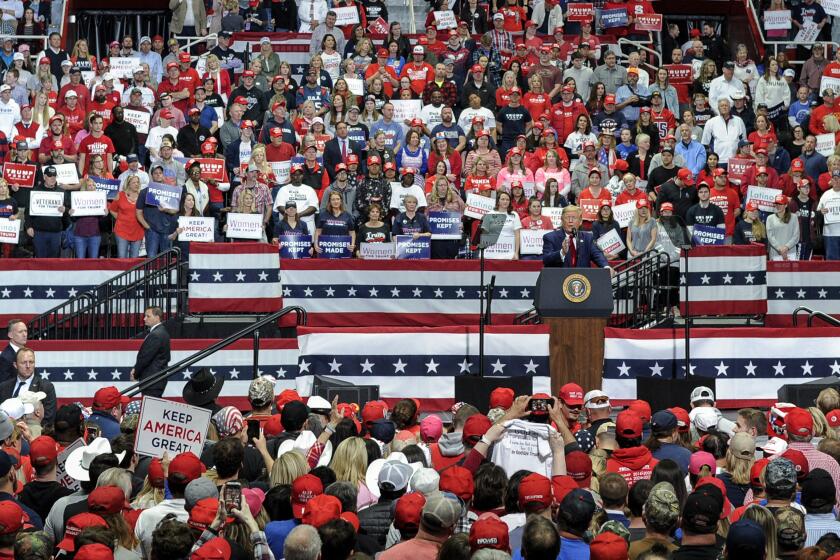Senate Panel OKs Billions in Tax Hikes : House Begins Bitter Debate on Its Version of Fiscal ’88 Budget
The Senate Budget Committee today approved a fiscal 1988 budget with up to $18.5 billion in tax increases as the full House began an acrimonious debate on its version of the $1-trillion spending plan.
All 13 Democrats on the Senate panel joined to push out of committee a revised proposal from Chairman Lawton Chiles (D-Fla.). In addition to the tax increases, the plan includes a sharp reduction in President Reagan’s defense buildup.
Republicans predicted trouble in the full Senate, where the Democratic majority is not as strong as in the House, even though Chiles’ military spending figure was about $2 billion higher than the House plan.
Not Sure of Consensus
“If we cannot provide more defense spending, . . . I’m not at all sure a consensus is possible on the floor of the Senate,” said Sen. Pete V. Domenici of New Mexico, the senior Republican on the panel.
House Democrats, confident that their version of the fiscal 1988 budget will pass although it also calls for tax increases, accused Reagan today of offering “short-term budgetary gimmicks” as a substitute for real deficit reductions.
Republicans countered that Democrats were merely perpetuating a “tax and spend, tax and spend” philosophy in a proposed budget full of “crippling defense cuts, funny money and phony baloney.”
Before the House began debate on the budget resolution, it approved parliamentary ground rules carefully structured by Democratic leaders to make sure that the $1-trillion spending plan produced by their party’s Budget Committee majority will prevail.
Cannot Be Amended
Under the rules, adopted on a party-line, 241-168 roll-call vote, the Democratic budget blueprint cannot be amended, and only a limited selection of complete alternatives will be allowed when voting begins Thursday.
Rep. Butler Derrick (D-S.C.), a committee member, said the Democratic plan makes $38.2 billion in real deficit cuts, contrasted with $19.8 billion for the President’s blueprint, without resorting to Reagan’s “short-term budgetary gimmicks . . . which really have no effect on our structural deficit.”
The Democratic strategy for floor debate was intended to prevent piecemeal attacks on aspects of the budget that might have trouble standing on their own.
More to Read
Get the L.A. Times Politics newsletter
Deeply reported insights into legislation, politics and policy from Sacramento, Washington and beyond. In your inbox three times per week.
You may occasionally receive promotional content from the Los Angeles Times.






